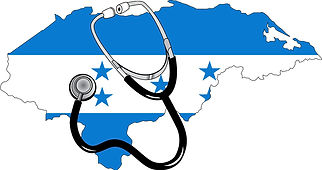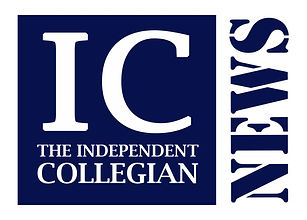
Led by Dr. Richard Paat, clinical professor of medicine, members of Students for Medical Missions visited Honduras during the first week of March to provide basic health care checkups alongside experienced doctors.
Medical students, residents, nursing students, nurse practitioner students, dental students, ancillary students and pharmacy students go on these trips each year with Dr. Paat.
Students were separated into two groups every day before heading out to different locations. Once on site, each team was divided into groups of two or three who tended to patients at clinics for up to nine hours, said Arjun Jindal, a second-year medical doctoral candidate.
Groups of students worked at two different centers — a triage and medical history and a documentation center.
At the three triage stations, students took blood pressure and listened to the heart, Jindal said.
Students also interviewed individuals for their family medical history and to document ongoing health problems they have at 12 stations, he said.
After going through both centers, the patient would then see a doctor who diagnosed and treated any ailments.
For some Hondurans, these clinics are their only access to healthcare.
“A man woke up at three in the morning to walk for miles to be seen at this clinic,” Jindal said.
According to Isabella Bartholomew, a second-year medical doctoral candidate, Hondurans have a different healthcare system or lack of a healthcare system. They have healers and for them to trust the students to treat them is amazing, she said.
They also have different health problems than Americans have, such as acute parasitic infections or compacted earwax, Bartholomew said.
Honduras is a Spanish-speaking nation, so to interview patients, students used translators. However, this didn’t always ensure clean communication.
“There are translators, but that isn’t perfect since people have different dialects,” Jindal said.
People can go on the trip even if they do not speak Spanish; they will pair students up with someone who is more fluent, Jindal said.
Local high school students get to be translators and learn more about medicine to help their people, he said.
This year over 2,500 people came to receive care from the clinics.
“It’s not all work; we get a couple days to relax and explore,” Bartholomew said.
People from all over the U.S. flew in to help at these clinics. A doctor from California even flew into Detroit to fly with the team to Honduras, Jindal said.
On top of medical clinics, SMM also has a sustainability initiative where students bring water filters and teach health promoters how to take care of people and use medical supplies, Bartholomew said.
“People think what we do is not sustainable since most medical missions are just one time and never come back, but we are different,” she said.

